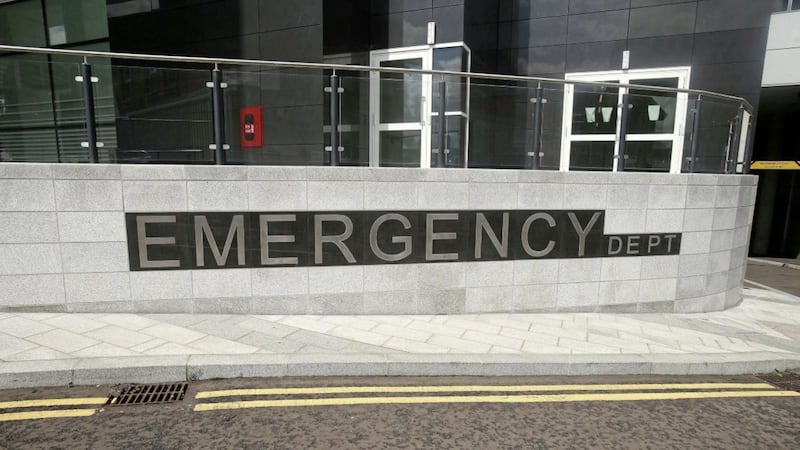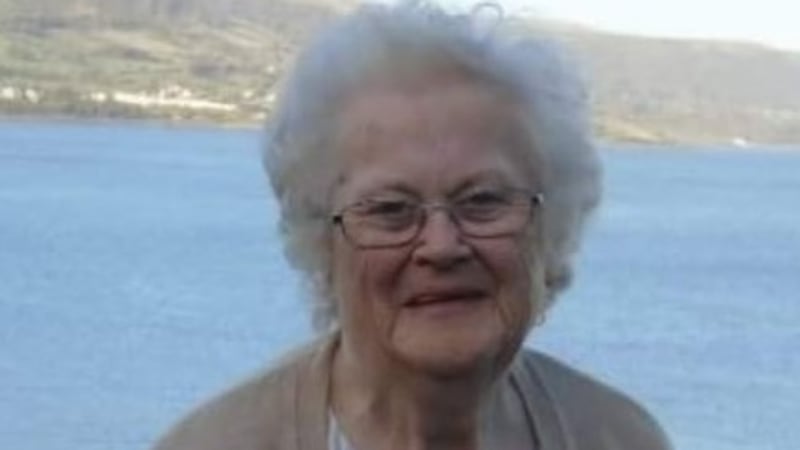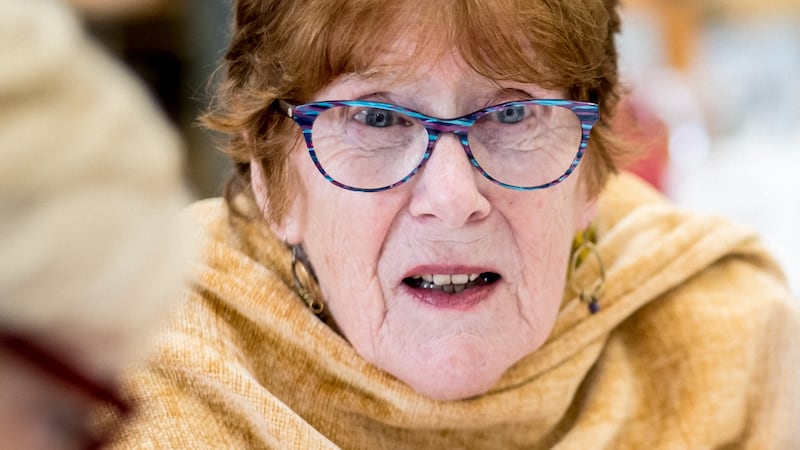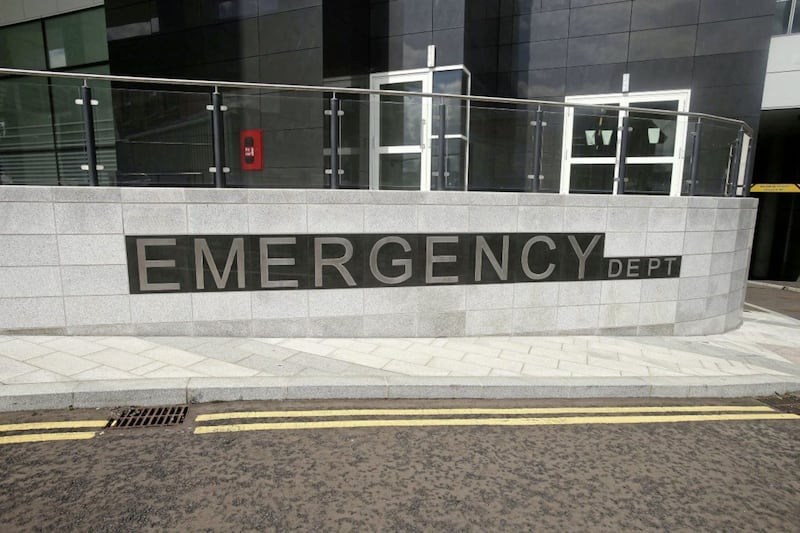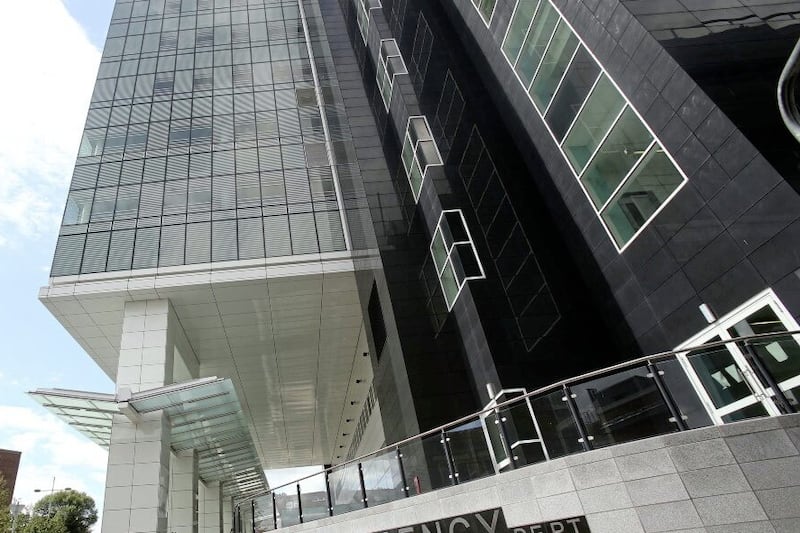Nurses believe a highly critical inspection report on the Royal Victoria Hospital emergency department was “less punchy” than expected based on the serious concerns raised by staff.
The inspection report based on visits last winter highlighted serious issues at the overcrowded department, including fire risks, lack of proper cleaning, staff burn out and the potential for the mismanagement of medication.
More broadly, the Regulatory and Quality Improvement Authority (RQIA) said there is a systemic problem in the inability of emergency departments across the north to move patients on to wards or safely back into the community.
Briege Donaghy, RQIA's chief executive, said there is a “danger of being complacent and saying hasn't it all been heard before”.

"This is now saying very briskly, very openly, that the minimum that we should expect in quality is not possible to be delivered in the environment that the Royal ED staff are trying to work in,” Ms Donaghy said.
"Without service reform, the ED will continue to be pressed to operate beyond its capacity and outside its core purpose with resulting increased risks to patient safety and to its staff.”
Rita Devlin, Northern Ireland director of the Royal College of Nursing, said action must be taken so the findings do not become another "piece of paper on a shelf".
Read More:
- Crowding, fire risks, potential medicine mismanagement and staff burnout, RVH inspectors report
- Hospital emergency departments in critical need
"It was less punchy than I thought it would have been," Ms Devlin told the BBC.
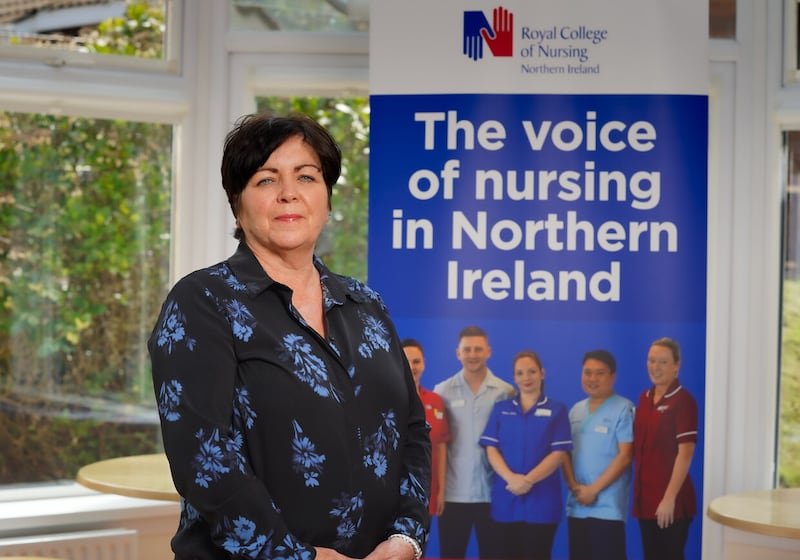
"Our nurses have told me that they raised and escalated their concerns and spoke out to the RQIA and in some ways they don't feel that their concerns are fully recognised within the report.
"I don't think [the nurses] could say it any firmer or louder to help people to understand just how bad things have got, not just in the Royal, but in every one of our EDs within Northern Ireland."
Ms Donaghy said the language in the inspection report may be measured but the conclusions are dramatic.
The RCN wants to know "who is going to take accountability and responsibility for implementing the quality improvements within the report?"
In a statement, the Belfast Trust said the "inspection took place during a period of extreme winter pressures, unprecedented ED overcrowding, and unacceptable waiting times".
The entire system was under considerable pressure, the trust said, adding: "These pressures are attributed to an ageing population, increased waiting lists exacerbated by the pandemic, and challenges in both primary and social care leading to difficulties discharging patients with the appropriate support in place."
The trust said steps have been taken since, including "the establishment of new triage pathways, significantly improved ambulance turnaround times at our ED, and the reconfiguration of the RVH Emergency Care Village to create a dedicated Medical Assessment Unit, including a frailty assessment area".
The Department of Health, asked what specifically has been done in the months since multiple reports of pressures and overcrowding over last winter, said "comprehensive planning to mitigate against the anticipated challenges" was taking place.
Winter planning and preparedness "spans across all service areas" and "includes extensive plans and actions for secondary care; social care; primary care; workforce and winter vaccinations," a spokesperson said.
Following a 2022 review, the department is working on "the establishment of urgent care centres across all Trusts; greater use of rapid access clinics and ambulatory care as alternatives to ED; the introduction of a regional 111 phone first service; greater focus on performance and capacity; and improving intermediate care to treat patients in their home, as an alternative to hospital admission".
People Before Profit MLA Gerry Carroll has expressed solidarity with what inspectors described as "burnt out" staff.

“This A&E and others like it are being kept afloat by efforts of staff who are overworked and completely burnt out. The underfunding and privatisation of our NHS is having a devastating human cost," the West Belfast MLA said.
“Short staffing, fuelled by poverty pay and insurmountable workloads, is putting lives at risk. A lack of domiciliary care provision, which is largely in private hands, is clogging up emergency departments because patients can’t be discharged in time."
SDLP health spokesperson Colin McGrath said the report should be used as a catalyst for change.
He said: "This report shows just how broken our system is and if we don't act now things are only going to get worse."
